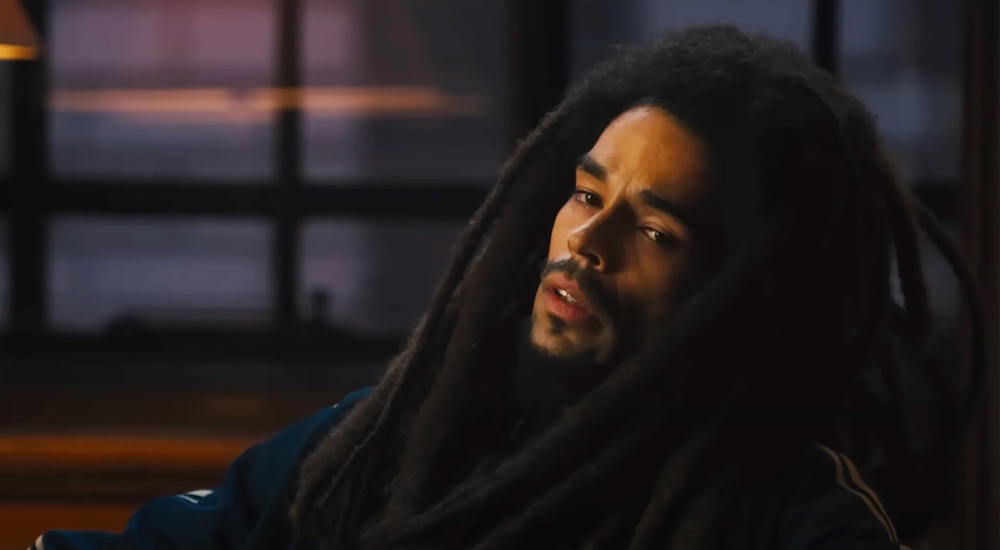For many biopics about departed musicians, the filmmakers must get the sign-off from their families, especially if they want the rights to the music. This necessary agreement can sometimes (okay, oftentimes) hamper a film, trapping it in a one-dimensional, overly rosy portrait of the musician. Unfortunately, Bob Marley: One Love falls prey to this trope. While the film itself is a joyful portrait of the legendary reggae singer, the long list of Marleys in the credits makes you wonder what the film left out.
Director Reinaldo Marcus Green avoids the narrative trend of telling Marley’s story from birth through death. Instead, he focuses on 1976 to 1978, a period bookended by peace-promoting concerts Marley held in Jamaica. Flashbacks are used throughout the film to give the audience the background it bypasses, but these scenes are so brief that it feels like we’re getting a Cliffnotes version of Bob Marley’s early life and career. We meet Marley as he’s just beginning his meteoric rise to fame, unflaggingly optimistic about hosting a concert promoting political peace in 1976. After it goes awry, with his wife (Lashana Lynch) and manager shot, Marley must flee his home country for the land of its oppressor, the UK.
Everything in One Love feels strangely low-stakes. Marley, played by Kingsley Ben-Adir with a righteous yet laidback air, never seems too ruffled by his challenges. He becomes a messiah-type figure to those in his orbit, and he seems to cruise through the creation of his legendary album Exodus and the following fame explosion. Any faults, any complicated human qualities, only make brief appearances. He loses his temper once, and his wife, Rita, briefly mentions during a fight that he sleeps around and has children with other women. But these are perfunctory mentions at best, quickly bypassed to return to his calm determination and dedication to his causes of peace and love.
The cast, particularly Ben-Adir and Lynch, throw their all into the roles, speaking in Jamaican Patois that seemed incredibly accurate, if not hard to understand in moments. Lynch in particular takes to the role of the great woman behind the great man, bringing complexity and pathos to Rita Marley, someone who balanced her husband’s career, love, and children with her own wants and needs while remaining his biggest cheerleader. Ben-Adir has taken great care to prepare for his role as the legendary singer, mirroring his frantic dance moves even if the actor’s muscled arms and chest inevitably clash with the scrawny reality.
In focusing on such a small period, One Love chooses to emphasize Marley’s message of peace and love and his dedication to spreading it through music. You don’t learn much about making the music itself or the deeper meanings behind Rastafarianism. It feels sanitized and the presence of his family during production feels very obvious. For a musician biopic, it doesn’t seem all that concerned with the music itself, instead elevating Marley to a religious messiah-type with small, forgivable flaws.
While its disjointed storytelling breaks the typical biopic mold, Bob Marley: One Love falls into the dreaded trap of idolizing its subject. Whether that be an artistic decision or a demand from the family, it means that the film itself never rises above average.

